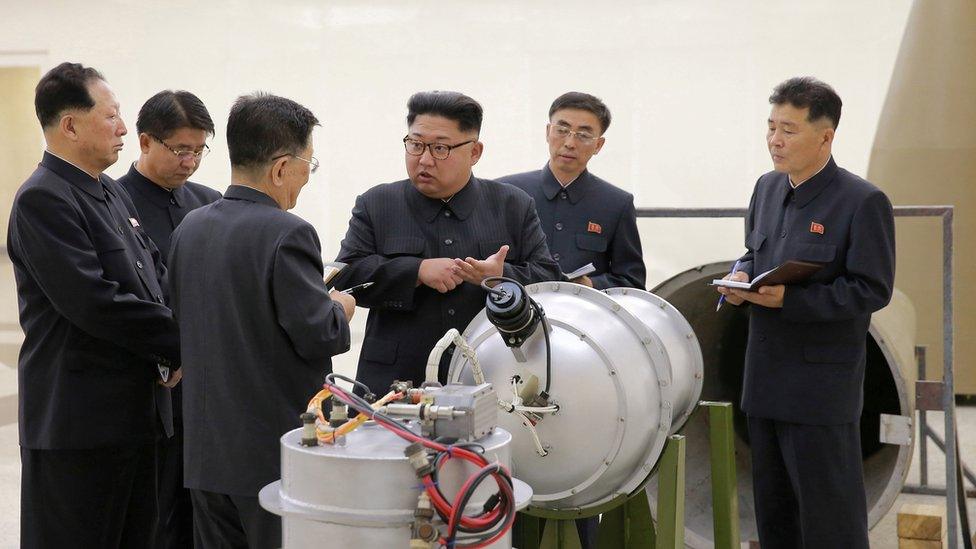Trump Kim summit: What North Koreans are being told
- Published
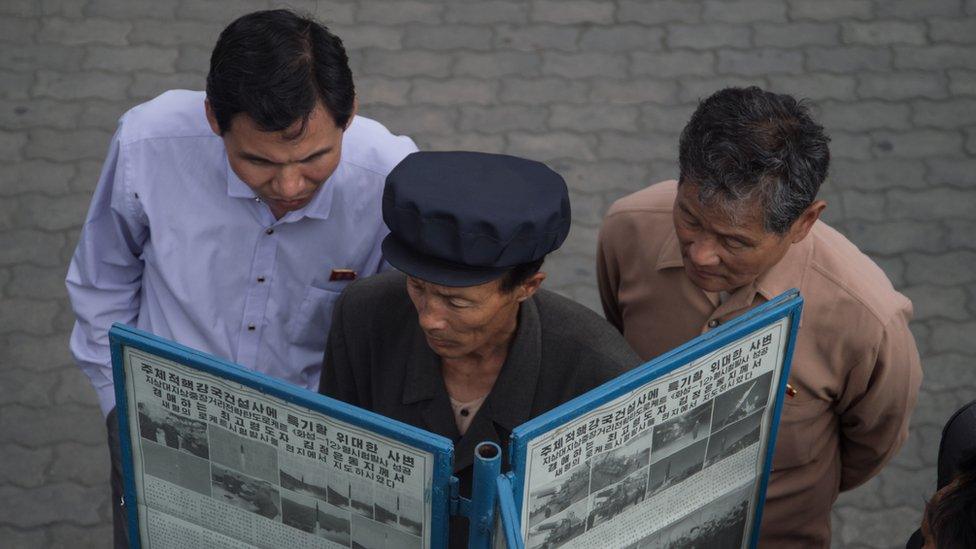
There are just days to go before the summit between US President Donald Trump and North Korean leader Kim Jong-un, but Pyongyang's state-controlled media seems to be rationing what North Koreans hear of it.
North Korea, which goes to enormous lengths to control what information reaches the eyes and ears of its citizens, tends not to report on important events until after they happen and has not directly mentioned the 12 June meeting, due to be held in Singapore.
Over the last month, the notion of a summit has only been mentioned a few times - when Pyongyang threatened to pull out of the meeting in mid-May, then again a few days later when it urged that it should take place after all.
Instead, reports on TV, radio and in newspapers speak of "dialogue" with the US as part of peace efforts initiated by Mr Kim in his New Year's Day speech.
What are they saying?
North Korean citizens know the summit is planned, but unless they've been paying very close attention, they have not been told when or where it is taking place.
The date is mentioned deep in a report on Mr Kim's recent meeting with South Korean President Moon Jae-in at the end of May; while North Koreans have been given no explanation as to why the Singaporean foreign minister visited Pyongyang yesterday.
Part of the report on US Secretary of State Mike Pompeo's 9 May visit to Pyongyang published in state newspaper Rodong Sinmun included lines on preparations for the planned summit meeting.
But it's worth noting that all the comments on the summit were attributed to Mr Pompeo, continuing the North's narrative that it was Washington that asked for dialogue, rather than Pyongyang.
Just a week later, the North's foreign ministry threatened to cancel the dialogue following statements from US officials that Pyongyang termed "sinister" and "absurd".
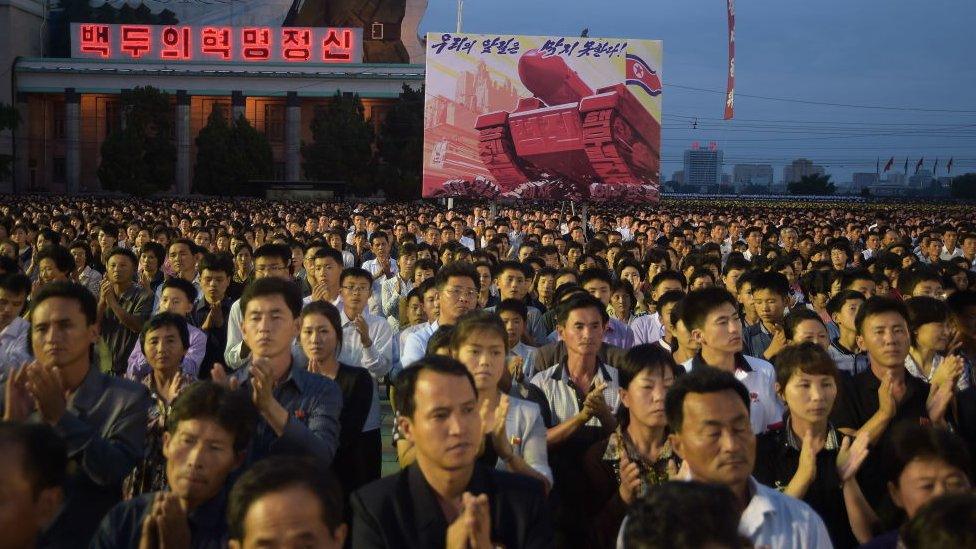
It is unclear if North Korea's citizens know when or where the historic summit is taking place
State news bulletins called the US position a "ridiculous comedy", and quoted the foreign ministry as saying "we will no longer be interested in such dialogue and cannot but reconsider our proceeding to the DPRK-US summit". The Democratic People's Republic of Korea (DPRK) is the official name of North Korea.
But nine days later, following Mr Trump's announcement that all meetings were off, North Korean press statements said that the summit was an "urgent necessity".
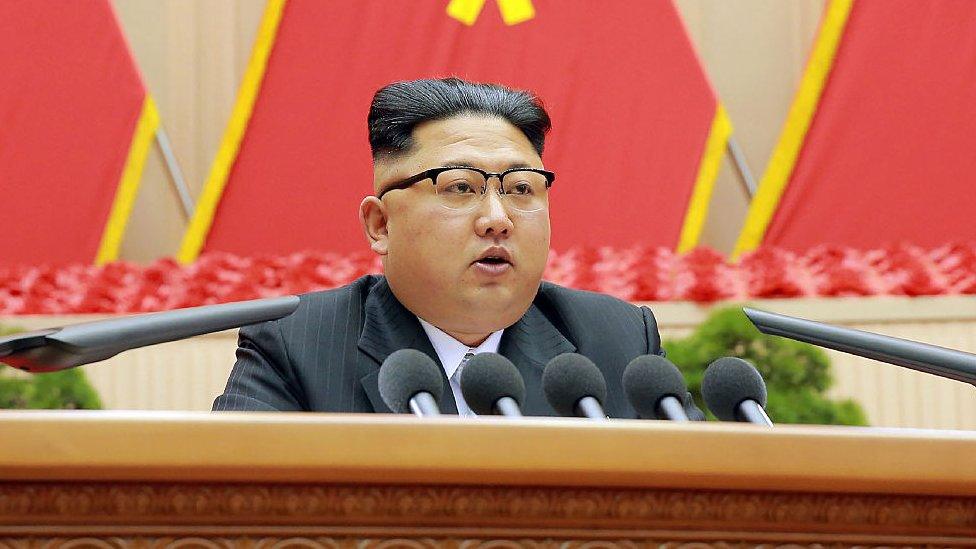
What North Korea's citizens are allowed to know is tightly controlled by the state
"The historic summit is now high on the agenda between the DPRK and the US, and the preparations for it are being pushed forward at the final stage amid the remarkably great concern of the world," the foreign ministry said in a KCNA report.
North Korean state media has remained relatively quiet on the summit, but it's possible that more comment is due - especially after Rudolph Giuliani, a member of Trump's legal team, said that Mr Kim "got back on his hands and knees and begged" for the summit.
This turn of phrase is exactly the type of wording that would normally enrage Pyongyang.
What are North Koreans saying?
It's difficult to gauge opinion from inside North Korea, but Daily NK - a South Korea-based website which says it has contacts inside the country - said citizens are aware that a meeting with the US is in the pipeline.
The website's unnamed source in South Hwanghae province said that people first knew about the planned summit after seeing reports of the Pompeo-Kim meeting in state media.
It was the first time that domestic media has covered a high level US-North Korea meeting, said Daily NK.
Before that, citizens had been in the dark about dialogue with the US, pointing out that perceptions of the US among North Koreans remain negative.
"North Koreans have long assumed that the US is an enemy of our people, and only remember the state's education system telling them that the US is the 'evil planner of war' and an 'invader,'" a Daily NK source reportedly said.
What is state media showing North Koreans?
Central Television, the main TV channel in North Korea, has a daily routine by which you could set your watch.
Trump-Kim summit: Can you achieve peace on a plate?
Programming rarely changes, and even special programmes fit around the unchanging news bulletins at 18:00 and 21:00.
State media has stuck doggedly to its usual diet of praise for the Kim dynasty, martial music, and films and dramas featuring ladled-on ideological messages.
With events involving Mr Kim habitually not reported to the people until he is safely back in Pyongyang, media behaviour both before and on summit day is not expected to change.
BBC Monitoring, external reports and analyses news from TV, radio, web and print media around the world. You can follow BBC Monitoring on Twitter, external and Facebook, external.
- Published29 May 2018
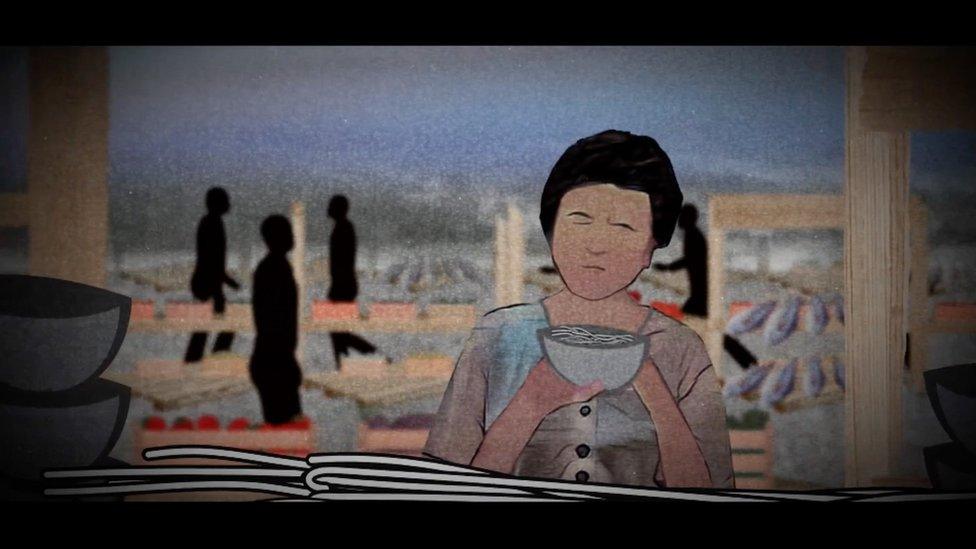
- Published18 February 2019
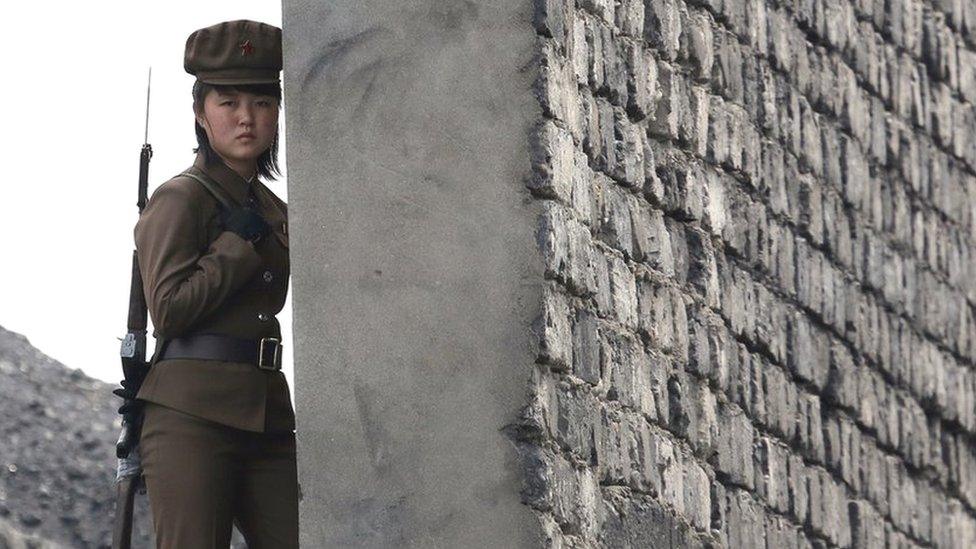
- Published8 June 2018
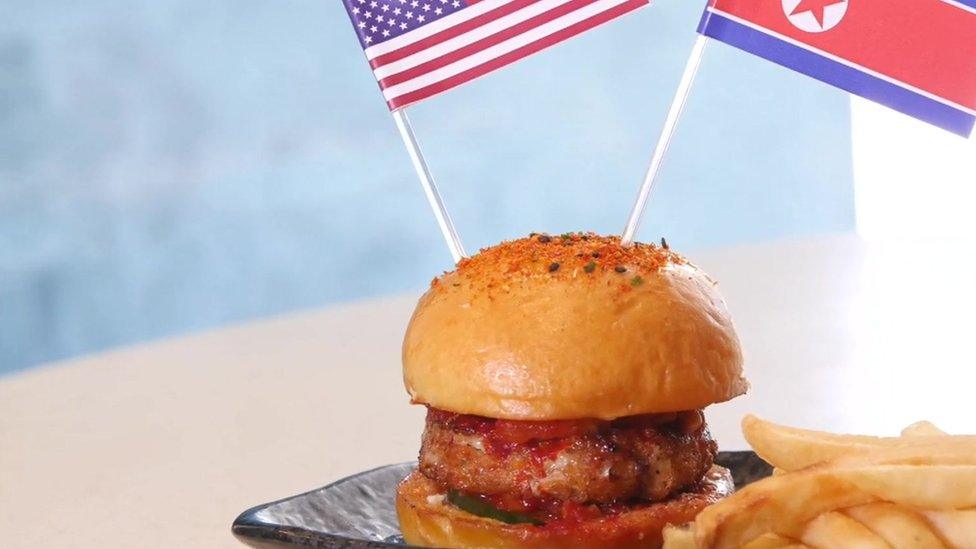
- Published21 April 2020
